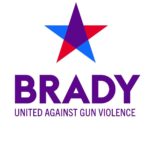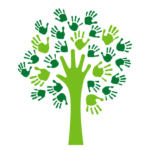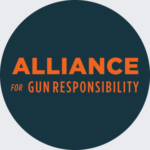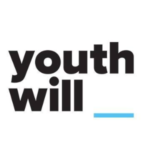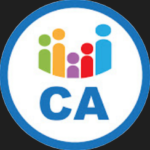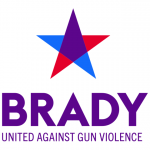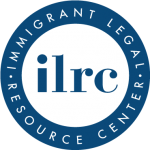Advocacy/Policy
The Educational Fund to Stop Gun Violence (Ed Fund) is a 501(c)(3) affiliate organization of the Coalition to Stop Gun Violence. We use a public health and equity lens to identify and implement evidence-based policy solutions and programs to reduce gun violence in all its forms. We seek to make gun violence rare and abnormal. The Ed Fund makes communities safer by translating research into policy. We achieve this by engaging in policy development, advocacy, community and stakeholder engagement, and technical assistance.
In getting the bipartisan Brady Law passed in 1993, Jim and Sarah Brady accomplished the inconceivable. But there’s more work to be done — and only when we work together will we solve this problem. In order to do that work, we must accept these three truths about America’s gun violence epidemic: 1) Gun ownership demands responsibility; 2) Those empowered to do so must uphold existing gun laws; and 3) Gun violence is a uniquely American problem that impacts all races and ethnicities in the country, but nonetheless exacts a particular toll on Black and Brown communities.
Sandy Hook Promise is a national nonprofit organization founded and led by several family members whose loved ones were killed at Sandy Hook Elementary School on December 14, 2012. Based in Newtown, Connecticut, our intent is to honor all victims of gun violence by turning our tragedy into a moment of transformation. By empowering youth to “know the signs” and uniting all people who value the protection of children, we can take meaningful actions in schools, homes, and communities to prevent gun violence and stop the tragic loss of life.
Giffords is a leader in the movement to end gun violence in America. Led by former Congresswoman Gabrielle Giffords, our team brings decades of political, legal, and policy expertise to the fight for gun safety. Our efforts shift culture, mobilize voters, and challenge injustice.
Nearly 40,000 people die from gun violence in the US every year. This uniquely American crisis leaves no community untouched—but it doesn’t have to be this way. From universal background checks to community-based violence intervention strategies, we know that there are proven solutions that will make our country safer. In statehouses and courthouses across America, we’re taking on the gun lobby and winning. Since the tragedy at Sandy Hook in December 2012, we’ve helped pass more than 350 gun safety laws in 45 states.
Gun violence is a complex problem, and ending this epidemic will require a wide range of solutions. We’re committed to seeing this fight through, until the promise of a safe and just country is a reality for every person and community in America.
The Alliance for Gun Responsibility works to end the gun violence crisis in our community and to promote a culture of gun ownership that balances rights with responsibilities. Through collaboration with experts, civic leaders, and citizens, we work to find evidence-based solutions to the crisis of gun violence in our community. We create innovative policy, advocate for changes in laws, and promote community education to reduce gun violence.
The Alliance for Gun Responsibility Foundation regularly gathers national and local subject matter experts together to share information and discuss the intersectionality of gun violence with a number of research and advocacy issues, including suicide prevention, domestic violence, hate crimes, trauma-informed care, stigma and discrimination. Each summit focuses on evidence-based best practices, next steps and coordination of prevention efforts.
We are proud to partner with hundreds of organizations across Washington who support commonsense gun violence prevention efforts in our state. The depth and breadth of our coalition membership shows the strong desire for change from voices in all corners of the state.
We also have a robust volunteer program with local leaders across the state. The chapter team model empowers volunteers to drive change in their communities by engaging in a wide range of grassroots activities, including organizing a phone bank, hosting a house party, visiting with a legislator and attending rallies and other events.
Youth Will’s mission is to fight for every young person to have everything they need to be happy, healthy, and prepared to reach their full potential.
The Trauma and Learning Policy Initiative’s (TLPI) mission is to ensure that children traumatized by exposure to family violence and other adverse childhood experiences succeed in school. To accomplish this mission, TLPI engages in a host of advocacy strategies including: providing support to schools to become trauma-sensitive environments; research and report writing; legislative and administrative advocacy for laws, regulations, and policies that support schools to develop trauma-sensitive environments; coalition building; outreach and education; and limited individual case representation in special education where a child’s traumatic experiences are interfacing with his or her disabilities.
Social-Emotional Learning Alliance for California is an organization that is advocating for Social-Emotional Learning (SEL) in all schools in California.
Understanding the issues and supporting common-sense solutions is the only way to fight America’s gun violence epidemic. Everything you need to know from the latest legislation and Brady reports to key statistics and personal stories can be found here. Share it with your friends as well. There is a lot of misinformation out there that needs to be corrected – be an educated activist.
All people in the United States, regardless of immigration status, have certain rights and protections under the U.S. Constitution. The ILRC’s Red Cards help people assert their rights and defend themselves in many situations, such as when ICE agents go to a home.
The Teachers Guild is a professional community that activates teachers’ creativity to solve the biggest challenges in education today. In their collaborative learning programs we use Design Thinking, a learner-centered approach to problem solving.
LD OnLine seeks to help children and adults reach their full potential by providing accurate and up-to-date information and advice about learning disabilities and ADHD.

